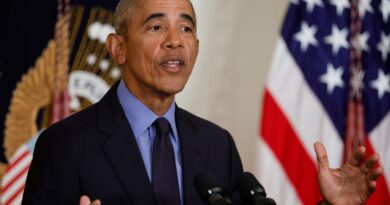Greece and Turkey seek fresh start to bilateral relations
ATHENS — Greece and Turkey agreed on a fresh start in their bilateral relationship following the recent thaw driven by the deadly earthquakes earlier this year.
Turkish President Recep Tayyip Erdoğan and Greek Prime Minister Kyriakos Mitsotakis, both recently re-elected, met this week for the first time in 16 months and agreed to build on the “positive momentum” that currently prevails between the long-estranged neighbors. Meeting on the sidelines of the July 11-12 NATO summit in Vilnius, they pledged to “activate multiple channels of communication” between the two governments.
The two sides will hold a High-Level Cooperation Council in Thessaloniki this fall, according to a joint statement. The council first met in 2010, but its last session was in 2016.
Despite being NATO allies, Athens and Ankara have been at odds for decades over a number of bilateral squabbles, including quarrels over maritime boundaries, overlapping claims to their continental shelves and the long-running Cyprus dispute.
Erdoğan cut off all bilateral talks with Greece after Mitsotakis urged U.S. lawmakers in May 2022 to block arms sales to Turkey. Military provocations soon soared, creating the most volatile situation since the two sides almost came to blows in 2020. Erdoğan has hinted he could snatch a Greek island overnight and even appeared to threaten Athens with a missile.
But a prompt reaction by Greece to the devastating earthquakes in Turkey in February created a new backdrop for bilateral relations. Airspace violations over the Aegean Sea have ceased since then.
Rapprochement roadmap
It’s uncertain how long the Greek-Turkish thaw will last.
“We are at the beginning — both me and President Erdoğan — of a new term and I have no reason at this moment to doubt the sincerity of his intentions,” Mitsotakis said at a press conference after their meeting in the Lithuanian capital.
Constantinos Filis, director of the Institute of Global Affairs and a professor of international relations at the American College of Greece, said Ankara and Athens now have a roadmap for their bilateral relations.
“The first step is to consolidate the conditions for de-escalation,” Filis said. “Secondly, there is the search for common ground in areas where there is room for cooperation, which can go beyond emergency situations, like the earthquakes and extend on migration, a front, which has not been sufficiently explored.”
Greece says the two sides should be able to agree on a way to resolve their differences over the delimitation of the continental shelf and the Exclusive Economic Zone. Turkey, however, wants to pursue other issues, including the demilitarization of the Aegean islands.
Former Turkish diplomat Sinan Ülgen, a senior fellow at the Carnegie Europe think tank, said there are reasons to be optimistic, but it would be ambitious to talk about a totally new era. “In order to consolidate this trend, there needs to be some concrete actions or results. And that’s been the tragedy of Turkey-Greece relations, that all we’ve been able to do is defuse crisis, but no more,” he said.
Emre Peker, a Turkey and EU expert at risk analysis firm Eurasia Group, sees this recalibration in the countries’ relations as a win-win for Erdoğan and Mitsotakis.
“It will likely prove sustainable in the short term, given both leaders’ recent election wins,” he said. “Going further out, the amount of goodwill that Ankara and Athens can generate will determine whether Turkey and Greece can begin to address long-standing territorial disputes — but that remains a remote possibility, for now.”
New face or ‘chameleon‘?
“Erdoğan was already the positive protagonist of the summit with his agreement to back Sweden’s NATO membership,” Filis said. “He would like the flow of positive news to continue, that Ankara is more predictable, less aggressive, giving more arguments to those who argue that Turkey is a valuable ally and should not be lost.”
However, he added, Erdoğan is a “chameleon” and it is premature to say whether this profile will last post-Vilnius.
Turkey’s last-minute decision to link Sweden’s NATO membership with Ankara’s bid to join the EU came as a surprise both domestically and internationally.
“This was complete political theater and will have no bearing on either NATO expansion or EU-Turkey relations,” said Peker. “But Greece can make hay of the developments by advocating for improved ties with Ankara and pushing for progress on files Turkey cares about, such as visa-liberalization and Customs Union modernization.”
Ülgen said Ankara wanted another formula to be able to say yes to Sweden, but ultimately the U.S. moved forward on the delivery of the F-16s, so there was no need to press on the EU issue.
“The U.S. is doing some rebalancing with regard to Turkey and Greece. There was a time when the U.S. policy had skewed too much in the direction of being supportive to Greece — or at least that was the way it was viewed in Turkey,” Ülgen said.
Filis underlined the need for a control mechanism to ensure Turkey ends aggressive displays toward its neighbors. “For Greece, this is a prerequisite and if this is not done it will negatively affect Greek-American relations,” Filis said.


